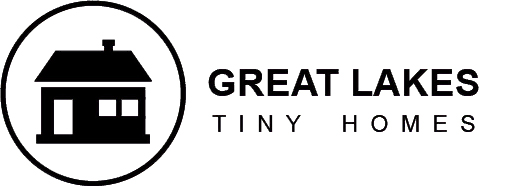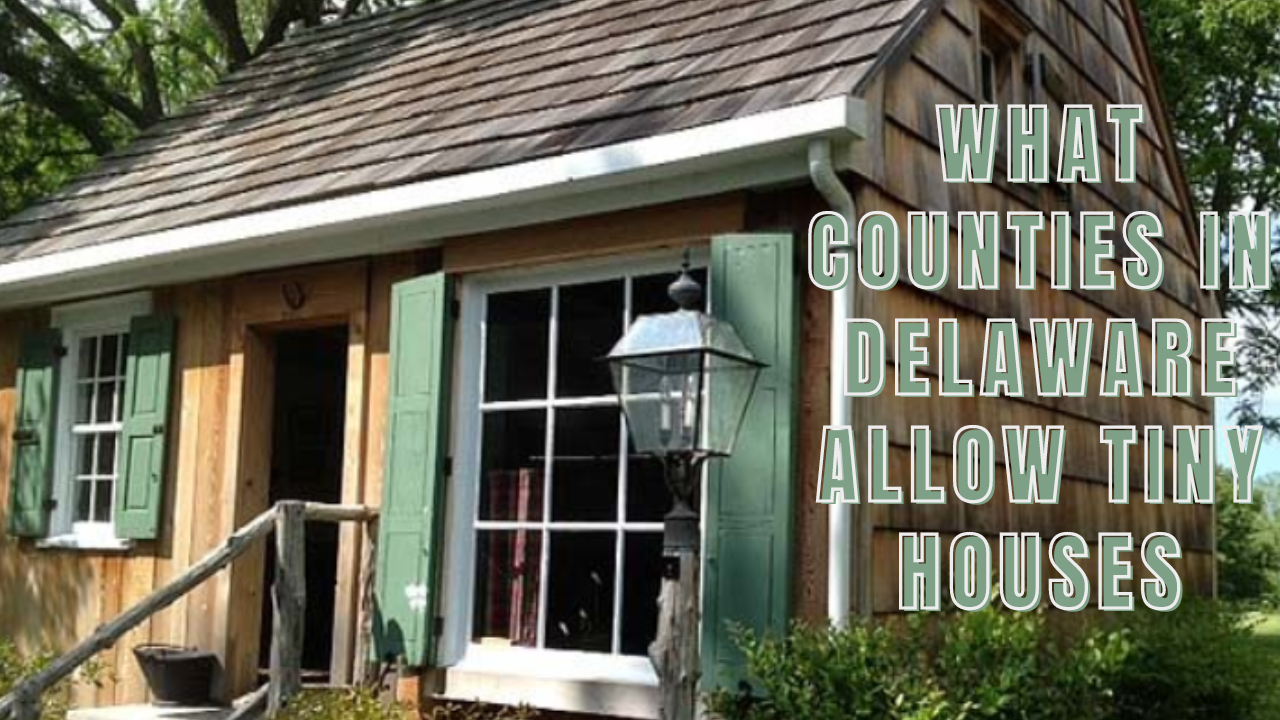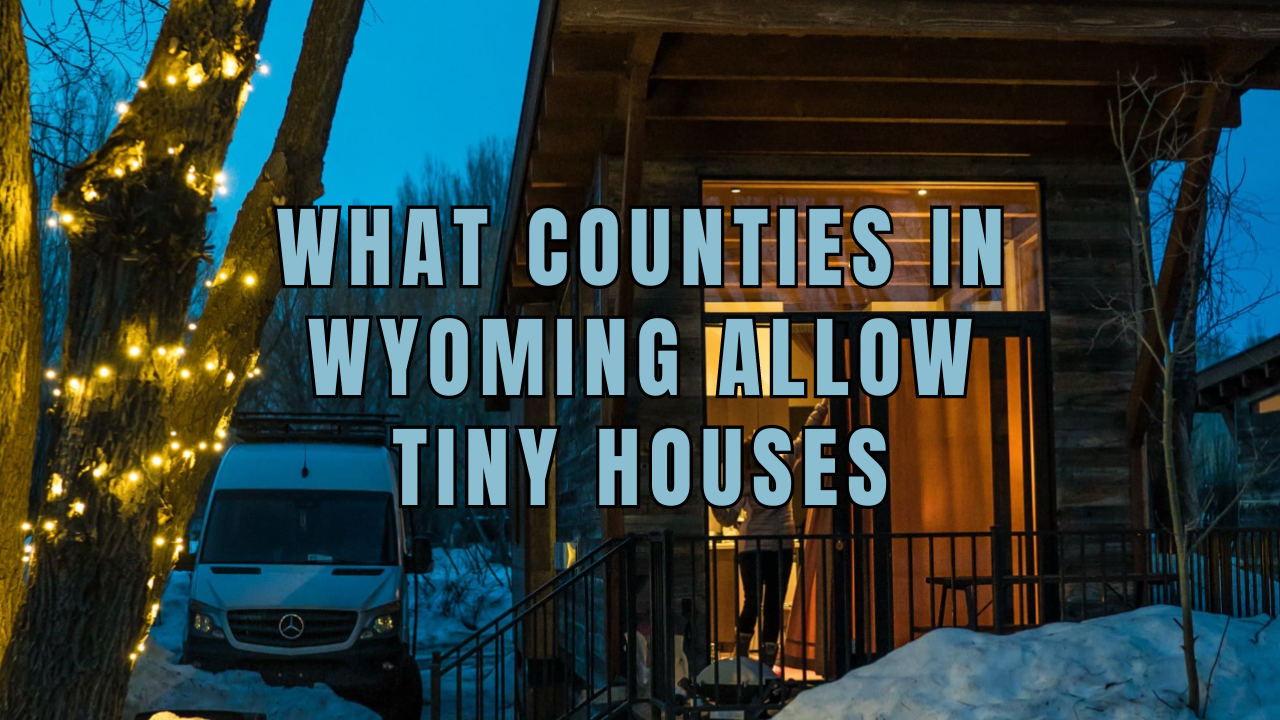With their simple and environmentally friendly lifestyle, tiny houses are becoming more popular in the US. Nevertheless, state rules and ordinances about these tiny homes differ.
Where to buy a tiny house in Delaware, which consists of just three counties—Sussex, Kent, and New Castle—will be discussed in this piece. We’ll look at Delaware’s zoning and building regulations for small homes, and some advantages and disadvantages of tiny house ownership.
Continue reading to learn more if you’re interested in this state’s tiny house movement.
Tiny House Prices in Delaware
You’ll need to look up reasonably priced solutions that meet your needs to build your tiny house.
We provide choices to fit every budget and lifestyle to help you move one step closer to your living project. Look at the tiny homes for sale in Delaware!
What counties in Delaware Allow Tiny Houses?
Several factors, including population density, local housing demands, and community views, contribute to the variations in tiny home legislation within Delaware counties. While rural regions have more lax laws to promote inexpensive housing alternatives, urban areas may have regulations to manage denser populations and preserve property values. Some counties follow the International Residence Code (IRC).
Sussex County
To preserve the historic ambiance of its inner districts, Sussex County maintains more stringent zoning restrictions in several of its residential communities. On the other hand, people are looking to downsize their coastal houses, with the tiny home movement becoming increasingly popular in that sector.
New Castle County
According to local laws, tiny dwellings need to be on a foundation and fulfill size standards. The conventional housing regulations in the county of New Castle comply with the state’s housing legislation. For example:
- For the first person, it must be at least 150 square feet; for each successive resident, it must be an extra 100 square feet.
- RVs are not allowed as permanent homes, tiny houses on wheels, or THOWs fall under this category.
Kent County
Tiny house living is legal in Kent County, although there are restrictions. A small house has to be on a foundation and fit specific size standards to be legal. It follows the International Residence Code (IRC):
- A minimum floor size of 170 square feet is necessary, and an extra 100 square feet for each person.
- Regarding THOWs, they are permitted in specific RV parks.
Tiny House Regulations And Rules In Delaware
Tiny houses are regulated by local zoning and building codes, which can vary by county or municipality. There are specific rules regarding minimum square footage, foundation requirements, and land use. As the popularity of tiny houses grows, there is ongoing discussion about updating regulations to accommodate this alternative housing option.
Permanent Structure Rules
Permanent tiny house structures are subject to the same regulations as traditional homes, including building permits and meeting minimum size requirements. Staying informed about local rules and regulations is crucial for tiny house enthusiasts in Delaware.
- Follow the International Residence Code’s (IRC) regulations and be constructed on a foundation.
- Each county has its minimum size requirement, which is 150 square feet.
Temporary Structure Rules
In Delaware, tiny houses on wheels are considered recreational vehicles and must comply with zoning regulations and building codes.
- THOWs qualify as temporary, subject to distinct regulations, and frequently restricted to RV parks.
- If they are larger than a specific size, they could be categorized as mobile homes and have to abide by road safety laws.
Transitional Structure Rules
In Delaware, tiny houses are considered transitional structures and are subject to specific regulations and rules. These rules include size limitations, zoning requirements, and building codes. It’s essential for anyone interested in building a tiny house in Delaware to research and understand these rules before starting their project to ensure compliance.
In Delaware, Where Can I Build A Tiny House?
Choose a location for the tiny house. Select a certified small house builder to guide you through the procedure, take care of the paperwork, and ensure the house conforms with all construction codes.
If you have a tiny home plan, building a tiny house doesn’t have to be difficult, even if it requires a lot of work. Tiny dwellings are frequently seen in the following locations:
- RV parks
- National Parks and campgrounds
- Tiny house communities
- Private properties
Tiny House Communities in Delaware
Tiny home communities are gaining popularity in Delaware as more people are looking for affordable and sustainable living options. These communities offer a sense of camaraderie and shared values among residents, creating a tight-knit neighborhood atmosphere. With a focus on minimalism and environmental consciousness, tiny house communities provide an alternative housing solution in Delaware.
Tiny Estates
For people who wish to reside in a tiny house permanently, there is a community called Tiny Estates 50 kilometers away from Wilmington, Delaware. Since every member owns a tiny house, the community does not provide tiny house rentals.
Tiny Estates has lots available for you to bring your tiny house on wheels into the community and take part in the small experience, in addition to tiny houses for sale. Game evenings, festivals, movie screenings, and holiday parties are just a few of the communal activities for everyone to enjoy.
Tiny House Builders Near Me
You avoid the hassle of looking for local suppliers by choosing from a wide variety of tiny home models that Great Lakes Tiny Homes provides and having them sent anywhere country.
Additionally, Great Lakes Tiny Homes is a manufacturer authorized by the RV Industry Association (RVIA), committed to meeting the highest manufacturing standards and higher construction, safety, and regulatory requirements for tiny homes.
Do I Need a Certified Builder?
Yes, you do!
Dealing with a company like Great Lakes Tiny Homes that has earned RVIA certification assures your tiny house will be built following all applicable rules and regulations.
It ensures the use of the strongest, safest, and longest-lasting materials.
Another benefit of working with an experienced contractor is the access to financing and insurance options. A tiny home that complies with RVIA regulations offers a secure environment in which to live.
FAQs
Can You Make a Tiny House in Delaware Your Main Residence?
In Delaware, it is possible to live permanently in a tiny home.
On the other hand, adhere to all pertinent municipal laws and ordinances. The best thing to do is find out whether your tiny house conforms with all applicable regulations, particularly inspection requirements, by contacting local zoning and government agencies.
You will see the rewards if you investigate the advantages of working with Delaware-licensed builders and leading a simpler, greener lifestyle.
In Delaware, What Types of Tiny Homes Are Allowed?
Although Delaware does not have a set definition for the term tiny house, it considers buildings that are between 120 and 400 square feet and qualify as Park Trailers, Custom Built Homes on Trailers, Manufactured Homes, and Factory-Built Homes.
A tiny home built on a foundation qualifies as a permanent residence. However, the home is a Tiny Home on Wheels (THOW) if it is on wheels, which comes with extra standards and considerations.
How Tiny Does a Home Get In Delaware?
Delaware has several minimum sizes for tiny houses that are allowed. For a precise measure, consult the county ordinances. Generally speaking, the inside of your tiny home must be at least 120 square feet.
Conclusion
Delaware has different policies regarding tiny homes in each of its counties, granting the freedom for each county to establish its own rules. While small homes are typically permitted, there are different rules for temporary, permanent, and transitional structures.
Potential tiny homeowners should extensively investigate local laws since adherence is necessary to prevent legal problems. Several organizations favor tiny living in Delaware, and there are continuous efforts to update and modify the laws about tiny dwellings.





